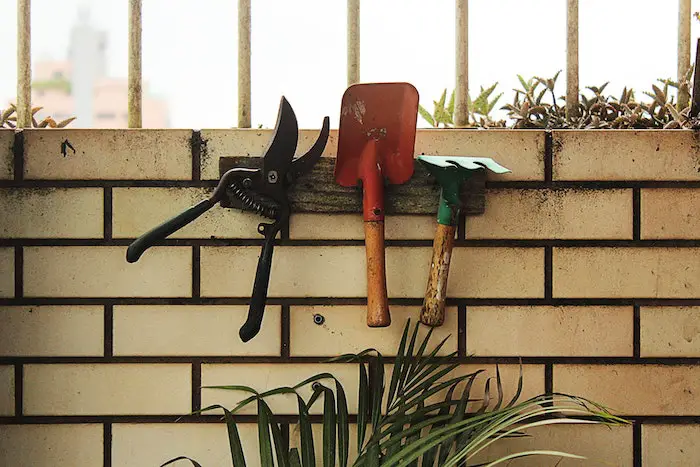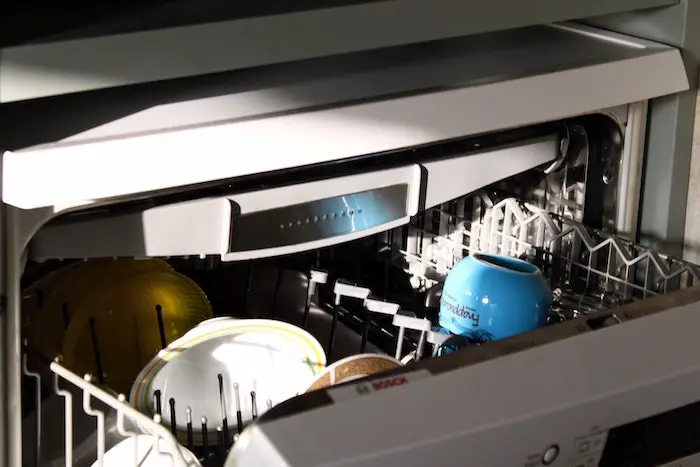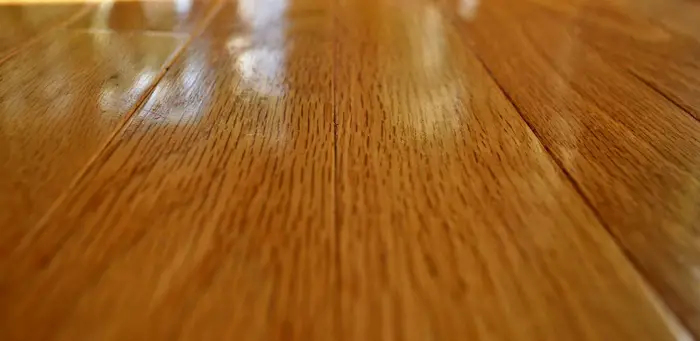It’s a huge relief to just place some greasy, dirty dishes in the dishwasher and get sparkling clean ones in just an hour or so without having to scrub it all yourself. Nevertheless, the proper use of dishwashers has been one of the hottest topics of debate, with many people being skeptical about the right way to load a dishwasher, the amount of detergent to use, and many other issues.
In this article, we will tell you about 16 things you didn’t know about dishwashers. Being aware of these additional benefits and uses of a dishwasher may help you get more out of your investment and make your life a tad easier. For those who are curious about the history and origin of this appliance, the dishwasher was developed by a wealthy lady in 1887, but it didn’t go mainstream and become a regular home fixture until the 1950s.
Besides just scouring the dishes so that your hands don’t look and feel miserable from cleaning them the hard way, dishwashers also do a variety of other things, all of which we will discuss here.
#1. No need to prewash dishes
Contrary to popular belief, there’s no need for you to prewash your dishes before putting them inside of the dishwasher. This is a common misconception because people think there will be less load on the machine if they prewash their dishes, but this actually makes them guilty of making their dishwasher less efficient as these appliances were made to handle a certain amount of gunk and filth.
Prewashing dishes not only wastes water but also wastes detergent as the soap ends up having nothing that it can hold on to. This confuses the machine, and it ends up running a lighter cycle. When this occurs, your dishes come out looking less clean.
#2. Wash baseball hats and sports equipment
You may not be able to wash regular clothes in your dishwasher because of the risk of the fabric getting damaged by the internal mechanisms of most dishwashers. However, there are certainly other types of apparel and sports equipment you can wash in there instead.
Hats tend to become stinky and sweaty, whether you wear them regularly or for only one game. You can put them in the dishwasher, toss them on the top rack, and run a cold cycle. The cleaning companies recommend a mixture of baking soda and vinegar to safely remove dirt, stains, or bad odors from your caps or hats. Avoid running the drying cycle and exposing them to such high temperatures that may warp the shape of your hat while it’s wet. Instead, let the caps air dry.
You can also clean various other sports equipment such as shoulder pads, helmets, knee pads, shin guards, and mouth guards. When they get dirty, simply put them in the dishwasher with some baking soda and vinegar solution, and run a hot cycle.
#3. Laundry pods and dishwasher pods
They look oh so similar that many people get tempted to use one instead of the other when they run out of them. But, is this a good idea? Can you do it once in a while without harming the appliance or your clothes or dishes?
Despite their similar appearance, you cannot use laundry detergent liquid or pods in dishwashers because they have cleaning ingredients meant to produce suds. If they are put in a dishwasher, there will be too many suds produced, creating an overflow and causing a huge mess.
Similarly, you should also resist the temptation of using dishwasher pods for doing laundry when you run out of detergent. The dishwasher tablets or pods are designed to break down at high temperatures so they may not dissolve completely inside a washing machine, leaving residue behind. Furthermore, dishwasher pods contain harsh ingredients such as bleach and surfactants that can fade or discolor your clothes.
#4. Cleaning beauty tools
Clean beauty tools ensure better hygiene, and putting them in a dishwasher can help in removing excess hair, grease, and bacteria. When using a dishwasher to clean your beauty supplies, you should simply rinse the makeup brushes off a bit and then place them in the silverware basket. Nail tools, tweezers, and scissors can be placed in a lingerie bag before being cleaned in the dishwasher to ensure that nothing gets thrown around or lost.
For better cleaning of the items, you may add baking soda and vinegar. However, because these are beauty-related items, we also suggest that you add a few drops of essential oils, too. This little trick can give you a spa or salon-like experience in terms of making your beautifying tools smell fresh and amazing.
#5. Rinsing produce
If you just came from the farmer’s market with fresh produce, you don’t need to waste time handwashing your fruits and vegetables. Instead, you can just load these into the dishwasher and run a cold cycle without using any soap. Also, make sure you skip using any drying settings. This shortcut will save you significant time cleaning your produce.
#6. Sanitizing kids’ toys
If you have a toddler in the house who puts everything in their mouth, a dishwasher can be of great help to sanitize toys and other things. You can load the slim toys made from plastic and rubber in the silverware holder and put everything else on the main racks to give them a nice, steaming, sanitizing bath. A lingerie bag may be used to hold small Lego blocks or other building blocks and small pieces.
#7. Cleaning your flip-flops
Wearing flip-flops to the beach may look cool and give you some great-looking photos, but these shoes tend to get smelly, dirty, and sticky after continuous wear during the summer months. So, again, a dishwasher comes in handy for cleaning these up. Hook them on a rack, run them through a cold cycle, and use a mix of baking soda and vinegar to get your flip-flops clean in no time.
#8. Getting grime off garden tools

If you have a love for gardening and growing vegetables and fruits in your backyard, this means you also need to deal with all of the dirty garden tools that come along with it. Hand tools made of ceramic or plastic, or even rubber-like hand gloves, can get very dirty. Dishwashing liquid is fine to use in this case to sanitize the tools and keep them clean.
#9. Cleaning glass light fixtures
Just as you can wash dishes made of glass, you can also clean the dirty glass light fixture globes and shades in your home with convenience when you do so in a dishwasher. When you are spring cleaning your home, remember that these similar items to what you would already place in a dishwasher can be cleaned in the same way, and this can save you plenty of time.
#10. Taking care of vacuum attachments
Your vacuum cleaner does a lot of hard work to keep your home clean, but it also needs some cleaning, too. This is possible with the help of a dishwasher. Washing the applicable parts that are safe to do so in a dishwasher will help you get rid of the gunk and smelly odor coming from the vacuum after prolonged use.
You can place vacuum attachments and even some filters, too, on the top rack of a dishwasher and run a gentle cycle to get them clean and like new. Make sure the parts are completely air-dried before using them, though.
#11. Getting dirt off terra cotta pots
While some gardeners may prefer a weathered look on their clay pots, they still need a good cleaning frequently to keep them in good condition between the plantings, especially to prevent any issues related to pests and diseases that will harm new plants. Terra cotta pots and saucers can be easily washed in a dishwasher on a gentle cycle before you put any new plants in them, so you’ll ensure your gardening pots are safe and ready to grow something amazing.
#12. Tupperware: is it always dishwasher-safe?
If you are wondering whether or not you can put your Tupperware in the dishwasher, you are not alone. Whether it should be hand-washed or is safe to place in the dishwasher may vary, though. We suggest that you check the label to see if it is dishwasher safe or not. The ones that are safe to clean in this appliance will have the statement ‘Safe For Dishwasher’ written somewhere.
The dishwasher uses hot temperatures to clean and sanitize dishes so remember to check how you’re your Tupperware may hold up before putting anything inside the appliance. We suggest that you put them on the top shelf during cleaning as well to reduce the chances of damage occurring to your plastic pieces.
#13. Grill parts in a dishwasher: yes or no?
Well, there are a lot of myths associated with this, so let’s clear this up a little. Putting greasy racks or other grill accessories directly into the dishwasher may cause the appliance to clog if there is still a significant amount of fat, oil, or residue left on the items, so avoid immediately trying to clean these in a dishwasher after use. Instead, clean the extra grease off in the sink, and remove any chunks from the grill plates before placing them inside the dishwasher.
#14. Cleaning your dishwasher without vinegar
White distilled vinegar is a common choice when it comes to cleaning the dishwasher. However, there are other ways you can get rid of dirt and stains without using any harmful chemicals. Lemon juice works as a natural acid to cut through grease and leave your appliance smelling fresh. You may also use salt as a natural scrub to clean a dishwasher. Another popular options is to mix baking soda with water to remove the grease, dirt, and stains.
#15. Cooking salmon for dinner
Now, here’s quite a surprise: you can cook salmon in your dishwasher! This may not be the most efficient way of cooking it, but when you don’t have any other options to do so, using a dishwasher in this case can actually prepare your meal. You simply need to season the salmon filets with oil, lime juice, salt, and pepper. Place them in airtight foil packets, and run a normal soap-free cycle. Remove the packets from the dishwasher, and enjoy your meal.
#16. Steaming veggies
This is another smart cooking hack you can use when you need to cook some vegetables for lunch or dinner really quickly without being able to use a stove. You can place chopped vegetables, such as asparagus and beans, in a mason jar with one cup of water, then season them with herbs, butter, lemon, and spices.
Now, place this jar on the top rack of your dishwasher and run a normal cycle. This will give you perfectly seasoned veggies for your meal.
Conclusion
Although some of these may have come as quite a surprise, we hope that learning about the additional benefits and uses of a dishwasher make your life a bit easier. Whether it’s for cleaning things besides dishes or preparing an entire meal, dishwashers are incredibly versatile appliances, and we want you to get the most bang for your buck out of this common kitchen fixture.


